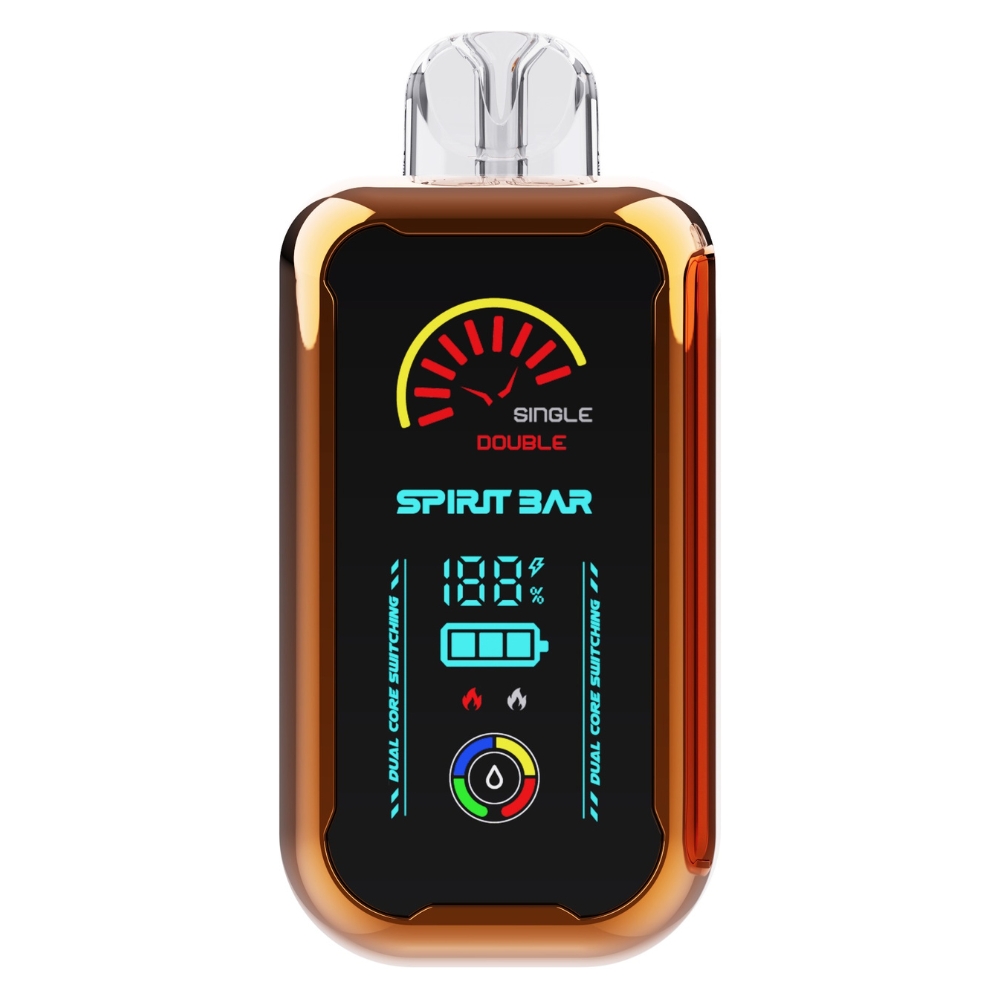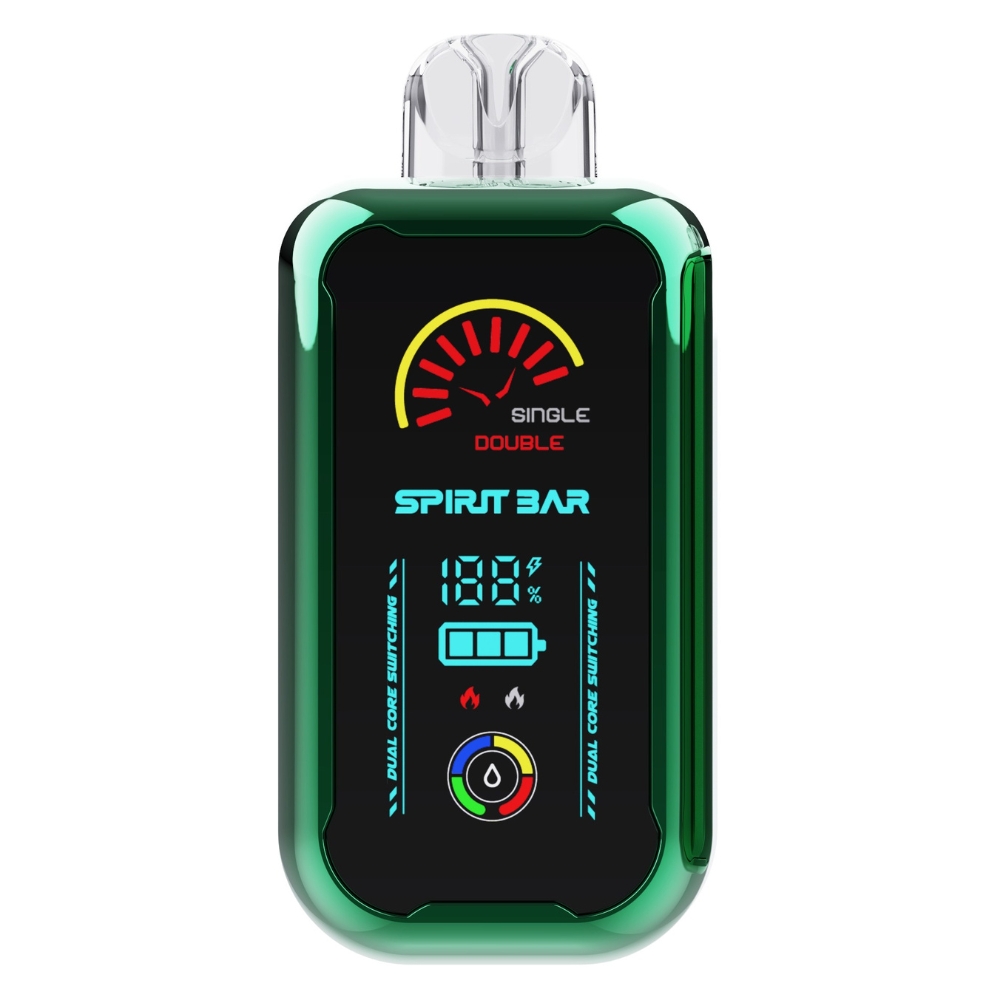Why Do I Cough When I Vape? Explained by Experts
If you’re new to vaping, you may have noticed that you cough more than usual when you first start using an e-cigarette. This can be a bit concerning, especially if you’re trying to quit smoking and are worried that vaping might not be the right choice for you. However, there’s no need to worry – coughing when you vape is a common side effect that many people experience, and there are several reasons why it might be happening.
One possible reason why you’re coughing when you vape is that you’re not inhaling the vapor correctly. Unlike smoking, where you inhale the smoke directly into your lungs, vaping requires you to take a slower, gentler puff and hold the vapor in your mouth for a few seconds before inhaling it into your lungs. If you’re not doing this correctly, you may be inhaling too much vapor at once, which can cause you to cough.
Another reason why you might be coughing when you vape is that the e-liquid you’re using is too harsh or has too high a nicotine content. E-liquids that are high in propylene glycol (PG) can also cause irritation in the throat and lead to coughing. Finally, if you’re a former smoker, your body may simply be adjusting to the new way of inhaling nicotine, and the coughing may be a temporary side effect as your body gets used to the change.
Understanding Vaping
Vaping has become a popular alternative to smoking traditional cigarettes. It involves inhaling vapor produced by an electronic device called a vape. The device heats up a liquid, called e-juice or vape juice, which contains nicotine, flavorings, and other chemicals. When you inhale the vapor, it delivers nicotine to your body.
Vaping is often marketed as a safer alternative to smoking. However, it is important to understand that vaping still carries risks. While it may be less harmful than smoking, it is not completely harmless. The long-term effects of vaping are not yet fully understood, and there are concerns about the potential health risks associated with inhaling chemicals and other substances found in vape juice.
When you first start vaping, you may experience coughing. This is a common side effect, especially for new vapers. There are several reasons why you might cough when you vape.
One reason is that you may be using the incorrect inhale technique on your device. Another reason is that the e-liquid you are using may be of poor quality or have high levels of nicotine or propylene glycol (PG). Additionally, irritants in the vapor, such as PG, can cause coughing.
To avoid coughing while vaping, it is important to use the correct inhale technique and choose high-quality e-liquids with lower levels of nicotine and PG. It is also important to stay hydrated while vaping, as vaping can dehydrate your body and leave your throat itchy.
Overall, understanding vaping and its potential risks and side effects is important for anyone considering using these devices.
The Anatomy of a Cough
Coughing is a reflex action that occurs when your body senses an irritant in your respiratory system. It is a natural mechanism that helps your body clear your airways of mucus, dust, and other foreign particles. When you vape, you may experience a cough due to the irritants in the vapor or due to inhaling too much vapor at once.
A cough typically consists of two parts: the inhalation and the exhalation. During the inhalation phase, you take in a deep breath of air. During the exhalation phase, you forcefully expel the air from your lungs. When you cough, the exhalation phase is more forceful than during normal breathing, which helps to clear your airways.
There are different types of coughs, including dry coughs and productive coughs. A dry cough is a cough that does not produce any mucus or phlegm. A productive cough, on the other hand, is a cough that produces mucus or phlegm. When you vape, you may experience a dry cough or a productive cough, depending on the irritants in the vapor and how your body reacts to them.
In addition to irritants in the vapor, other factors can also contribute to a cough when you vape. These include the nicotine strength, the inhale technique, and the quality of your vaping device. By understanding the anatomy of a cough and the factors that can contribute to it, you can take steps to minimize your coughing when you vape.
Link Between Vaping and Coughing
If you are a new vaper, you might have experienced coughing while vaping. Coughing is a common side effect of vaping and can be caused by various factors. In this section, we will explore the link between vaping and coughing.
One of the reasons why you might cough while vaping is due to incorrect vaping technique. If you are new to vaping, it might take some time to get used to inhaling the vapor. You might be inhaling too much vapor or not inhaling it correctly, which can cause irritation in your throat and lungs, leading to coughing.
Another reason why you might cough while vaping is due to the irritants in the vapor. Propylene glycol (PG) is a common ingredient in e-liquids and can cause irritation in the throat and lungs, leading to coughing. If you are sensitive to PG, you might want to switch to e-liquids that contain a higher percentage of vegetable glycerin (VG).
Nicotine strength can also be a factor in causing coughing while vaping. If you are using e-liquids with high nicotine strength, you might experience a massive throat hit, leading to coughing. You might want to switch to e-liquids with lower nicotine strength or gradually reduce the nicotine strength to avoid coughing.
Lastly, vaping can dehydrate your body, leaving your throat itchy and dry, leading to coughing. It is essential to stay hydrated while vaping by drinking plenty of water or other hydrating fluids.
In summary, coughing while vaping is a common side effect and can be caused by various factors such as incorrect vaping technique, irritants in the vapor, high nicotine strength, and dehydration. By understanding the link between vaping and coughing, you can adjust your vaping technique or e-liquid choices to avoid coughing.
Common Ingredients in Vape Juice
When it comes to vaping, the ingredients in the vape juice can play a significant role in whether or not you experience coughing. Vape juice, also known as e-liquid, is a mixture of several ingredients that create the vapor you inhale. Here are some of the most common ingredients found in vape juice:
Propylene Glycol (PG)
PG is a clear, odorless liquid that is commonly used as a food additive. It is used in vape juice to create a smooth throat hit and to carry the flavorings and nicotine. While PG is generally considered safe for consumption, it can cause irritation to some people’s throats, leading to coughing.
Vegetable Glycerin (VG)
VG is a thick, sweet liquid that is derived from vegetable oil. It is used in vape juice to create dense clouds of vapor and to add sweetness to the flavorings. VG is generally considered safe for consumption, but it can be a bit harsh on the throat, especially when used in high concentrations.
Flavorings
Flavorings are added to vape juice to create the wide variety of flavors available on the market. These flavorings are usually food-grade and safe for consumption. However, some people may be sensitive to certain flavorings, which can lead to coughing or other adverse reactions.
Nicotine
Nicotine is an addictive substance that is found in tobacco. It is also added to some vape juices to provide a similar experience to smoking. While nicotine is generally considered safe in small amounts, it can cause irritation to the throat and lungs, leading to coughing. Additionally, high levels of nicotine can cause a harsh throat hit, which can also lead to coughing.
Other Additives
Some vape juices may contain other additives, such as water, alcohol, or sweeteners. While these additives are generally considered safe for consumption, they can also cause irritation to the throat and lungs, leading to coughing. It’s important to read the ingredients list on your vape juice and be aware of any potential sensitivities you may have to certain additives.
Potential Health Risks of Vaping
Vaping is often marketed as a safer alternative to smoking traditional cigarettes. However, there are still potential health risks associated with vaping that you should be aware of.
One of the main concerns is the exposure to chemicals. When you vape, you are inhaling a mixture of chemicals, including nicotine, propylene glycol (PG), and flavorants. While these chemicals are generally considered safe for ingestion, the long-term effects of inhaling them are not yet fully understood.
Inhaling these chemicals can irritate the lungs and cause inflammation. This can lead to coughing, wheezing, and shortness of breath. In some cases, it can even lead to more serious lung conditions, such as chronic obstructive pulmonary disease (COPD) and lung cancer.
Another concern is the potential for addiction. Nicotine is highly addictive, and vaping can deliver high levels of nicotine to the body. This can lead to dependence and withdrawal symptoms if you try to quit.
Furthermore, there have been reports of vaping-related lung injuries, such as the 2019 E-cigarette or Vaping Use-Associated Lung Injury (EVALI) outbreak. While the exact cause of these injuries is not yet known, it is clear that vaping can have serious consequences for respiratory health.
In summary, while vaping may be marketed as a safer alternative to smoking, there are still potential health risks that you should be aware of. The long-term effects of inhaling chemicals and the risk of addiction and lung injuries are all concerns that should be taken seriously.
How to Reduce Coughing When Vaping
If you’re experiencing coughing when vaping, it’s important to understand that it’s a common side effect, especially for new vapers. Fortunately, there are several things you can do to reduce coughing when vaping.
Choose the Right E-Liquid
One of the main reasons why you might cough when vaping is due to the e-liquid you’re using. If you’re using an e-liquid with a high nicotine content, it can cause a harsh throat hit, which can lead to coughing. Try switching to an e-liquid with a lower nicotine content to reduce the harshness of the throat hit.
Adjust Your Inhalation Technique
Another reason why you might cough when vaping is due to your inhalation technique. If you’re inhaling too deeply or too quickly, it can cause irritation to your throat and lungs, leading to coughing. Try taking smaller, slower puffs to reduce the irritation.
Stay Hydrated
Vaping can cause dehydration, which can make your throat feel dry and itchy, leading to coughing. Make sure you’re drinking enough water throughout the day to stay hydrated. You can also try using a throat lozenge or cough drop to soothe your throat.
Check Your Equipment
If you’re still experiencing coughing when vaping, it’s possible that your equipment is causing the issue. Check to make sure your device is set up correctly and that your atomizer is working properly. If you’re using a sub-ohm tank, try adjusting the PG/VG ratio of your e-liquid to reduce irritation.
By following these tips, you can reduce coughing when vaping and enjoy a smoother, more enjoyable vaping experience.
When to Seek Medical Attention
If you are experiencing persistent coughing, shortness of breath, or chest pain while vaping, it is essential to seek medical attention. These symptoms could be a sign of a serious lung condition, such as bronchitis, pneumonia, or lung cancer.
It is also crucial to seek medical attention if you experience any of the following symptoms after vaping:
- Dizziness or lightheadedness
- Rapid heartbeat
- Nausea or vomiting
- Headache
- Confusion or disorientation
These symptoms could be a sign of nicotine poisoning, which can be life-threatening if left untreated.
If you are a former smoker and experience a persistent cough after switching to vaping, it could be a sign of your cilia regrowing. Cilia are tiny hair-like structures in your lungs that help clear mucus and other debris. Smoking damages and destroys cilia, but they can regrow over time after quitting smoking. This process can cause a temporary increase in coughing.
In summary, if you experience persistent coughing, shortness of breath, chest pain, or any other concerning symptoms while vaping, seek medical attention immediately. It is always better to err on the side of caution and get checked out by a medical professional.
Frequently Asked Questions
How can I reduce coughing when I vape?
Coughing while vaping is a common side effect, especially for new vapers. If you are experiencing coughing, there are a few things you can do to reduce it. First, make sure that you are inhaling the vapor correctly. Take slow and steady puffs, and inhale the vapor into your mouth before inhaling it into your lungs. Second, try using a lower nicotine strength e-liquid, as high levels of nicotine can cause throat irritation and coughing. Finally, make sure that your vaping device is set up correctly and that you are using high-quality e-liquids.
What are the risks of vaping on lung health?
While vaping is generally considered to be less harmful than smoking, it is not risk-free. Vaping can still cause respiratory problems, especially if you use it frequently or for long periods of time. Some studies suggest that vaping can cause lung inflammation, damage to lung tissue, and even lung disease. However, more research is needed to fully understand the long-term health effects of vaping.
Is coughing a common side effect of vaping?
Yes, coughing is a common side effect of vaping, especially for new vapers. This is because the vapor can be harsh on the throat and lungs, especially if you are using high levels of nicotine or propylene glycol (PG). However, coughing from vaping is usually temporary, and most people find that it goes away after a few days or weeks of use.
Can vaping cause long-term respiratory problems?
There is some evidence to suggest that vaping can cause long-term respiratory problems, especially if you use it frequently or for long periods of time. Some studies have found that vaping can cause lung inflammation, damage to lung tissue, and even lung disease. However, more research is needed to fully understand the long-term health effects of vaping.
What are some alternatives to vaping?
If you are looking for an alternative to vaping, there are several options available. Nicotine replacement therapy, such as nicotine gum or patches, can help reduce nicotine cravings without the harmful effects of vaping. Behavioral therapy and support groups can also be effective in helping people quit smoking or vaping.
How long does it take for lungs to heal after quitting vaping?
The length of time it takes for your lungs to heal after quitting vaping depends on several factors, including how long you have been vaping, how frequently you vape, and whether you have any underlying respiratory problems. However, most people find that their lung function improves within a few weeks to a few months after quitting vaping.



